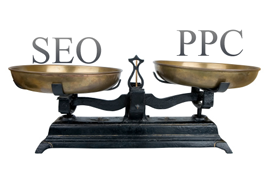 Whether or not you agree with healthcare reform, it’s important to know how it’s going to affect you. Unfortunately, it seems like there’s a lot of conflicting information out there. That’s why here at Healthcare Information Services, we think it’s important to lay out the facts.
Whether or not you agree with healthcare reform, it’s important to know how it’s going to affect you. Unfortunately, it seems like there’s a lot of conflicting information out there. That’s why here at Healthcare Information Services, we think it’s important to lay out the facts.
What Is PPACA?
 Whether or not you agree with healthcare reform, it’s important to know how it’s going to affect you. Unfortunately, it seems like there’s a lot of conflicting information out there. That’s why here at Healthcare Information Services, we think it’s important to lay out the facts.
Whether or not you agree with healthcare reform, it’s important to know how it’s going to affect you. Unfortunately, it seems like there’s a lot of conflicting information out there. That’s why here at Healthcare Information Services, we think it’s important to lay out the facts.
What Is PPACA?
Commonly called “Obamacare” or “Healthcare Reform” the PPACA is the Patient Protection and Affordable Care Act. It was signed into law March 2010 and outlined some sweeping changes as to how health insurance is paid and provided throughout the United States.
As the Supreme Court has held up healthcare reform, much of the law will go into effect in 2014.
So What’s Changing?
One of the biggest changes is the creation of Health Insurance Exchanges (HIEs or HIXs) in each state, now called Health Insurance Marketplaces (HIMs). These HIMs were designed to encourage competition in the insurance market to provide programs to cover individuals who need to purchase insurance on their own (a Health Benefits Exchange) and to help small businesses provide insurance for their employees under the Small Business Health Options Program (SHOP).
There are three different kinds of state/federal participation plans that will go into action in 2014. Some states will be operating their own plan, which would be state-owned. Other states will be choosing to do a partnership, where they work with the federal government to operate their plan. States who choose to opt out completely will have a federal-run plan, which will be operated entirely by the federal government.
All three kinds of plans will offer four different levels of coverage, which means that participants can choose the one that is most appropriate for them. The most basic level of coverage is the Bronze level, but participants can opt to choose more expensive plans that have more coverage and lower deductibles for a higher premium. In order to best provide for everyone’s needs, there are Bronze, Silver, Gold, and Platinum plans.
Who Can Purchase an Exchange?
Beginning in 2014, PPACA is requiring almost everyone to have health insurance. Because of this, the PPACA authorizes entities called American Health Benefit Exchanges to provide coverage for individuals. These will be set up by the state, or by the state in partnership with the federal government, or by the federal government for the state, by January 1st, 2014.
In order to qualify for an Exchange, applicants have to be a United States citizen or legal immigrant who is not currently incarcerated. They must also not have access to employer coverage that is affordable.
Small businesses who want to offer coverage to their employees may qualify for the Small Business Health Options Program, or SHOP. These are similar to the American Health Benefit Exchanges, only they do not target individuals. Businesses that have 100 or fewer employees may qualify for coverage, however until 2016, states can only offer Exchanges to companies with 50 or fewer employees. Then, in 2017, the states can choose to allow businesses with more than 100 employees to qualify.
This boils down to about 24 million people qualifying and purchasing their insurance through an Exchange, which doesn’t include the estimate of another 5 million qualifying through their employer.
Image: Stuart Miles/ Freedigitalphotos.net
![]()







